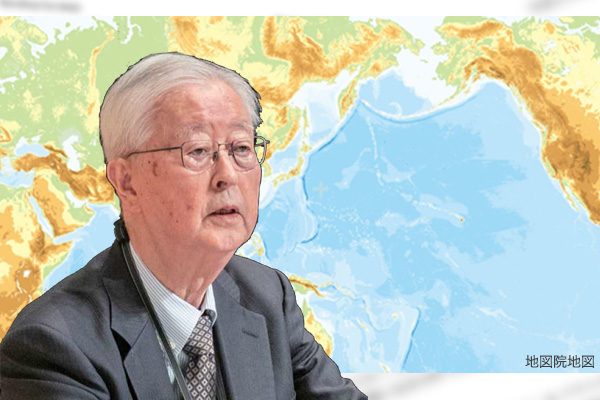As I have been assigned to looking back upon the past year, I would like to make a personal observation. The problem to which I have persistently been giving attention is that Japan’s awareness of the international situation has failed to catch up with actual changes of the situation. “The Four Ages of American Foreign Policy” by Michael Mandelbaum, a professor emeritus at Johns Hopkins University, has been published recently and talked about. The book is interesting but fails to analyze a fifth age that is a focus of attention in the current world. The international order that had been led by the United State and supported by developed countries since the end of World War II is not working now. None other than the U.S. can reconstruct the international order, but the U.S. as a whole is not facing in that direction. Japan, for its part, has just begun finally to talk about breaking away from the postwar.
Tectonic shift in great power relations
I have believed that the postwar international order became the most brilliant in 1991. On March 6 of the year after the U.S. brought an end to the Cold War with the Soviet Union and won the Persian Gulf War against Iraq, then excited U.S. President George H.W. Bush in an address to the joint session of the Congress said, “The Gulf War put this new world to its first test, and, my fellow Americans, we passed that test.” I still remember his elated expression.
The U.S. was the world’s leader at the time that achieved the West’s victory in the Cold War. During the Cold War, confronting great powers were toying with the United Nations. Regarding the Gulf war, however, 29 countries joined to fight against Iraq, with 12 resolutions adopted at the United Nations. The Soviet Union and China joined the resolutions. Defeated Iraqi President Saddam Hussein acted as a typical international villain.
Over five years from 1990 to 1995 when the world entered a unipolar age of U.S. predominance, the U.S. was at the height of its prosperity. Since then, a great power balance collapsed. After becoming a hero, H.W. Bush lost his popularity fast and faced an unexpected defeat in the 1992 presidential election. At the same time, China began to rise and gain power. Russia’s decline allowed China to expand its global influence.
The current international chaos might have originated from the tectonic shift in great power relations. At an annual general meeting of the Japan Institute for National Fundamentals in autumn this year, famed French historical demographer Emmanuel Todd emphasized that World War III had started.
Politicians should talk about strategies
This year’s two biggest international incidents were Russia’s aggression against Ukraine and China’s military intimidation of Taiwan. As foreseen by former U.S. Presidential National Security Adviser Zbigniew Brzezinski, Russia’s aggression against Ukraine represents a part of its strategic movement to reconstruct a Eurasian empire extending to Central Asia and to the Middle East. If without the unlawful Russian action, the U.S.-Europe solidarity or the unity of the North Atlantic Treaty Organization might have been unthinkable. While Todd concludes that the West does not have to fear China plagued with population problems, U.S.-Taiwan relationship demonstrates its unprecedented solidarity, with Japan-Taiwan relationship being unlikely to weaken.
Japanese politicians should talk about great strategies while leaving bureaucrats to consider tactics. If not, statesmen like Charles de Gaulle or Winston Churchill would not come out in Japan.
Tadae Takubo is Vice President, Japan Institute for National Fundamentals, and a professor emeritus at Kyorin University.


